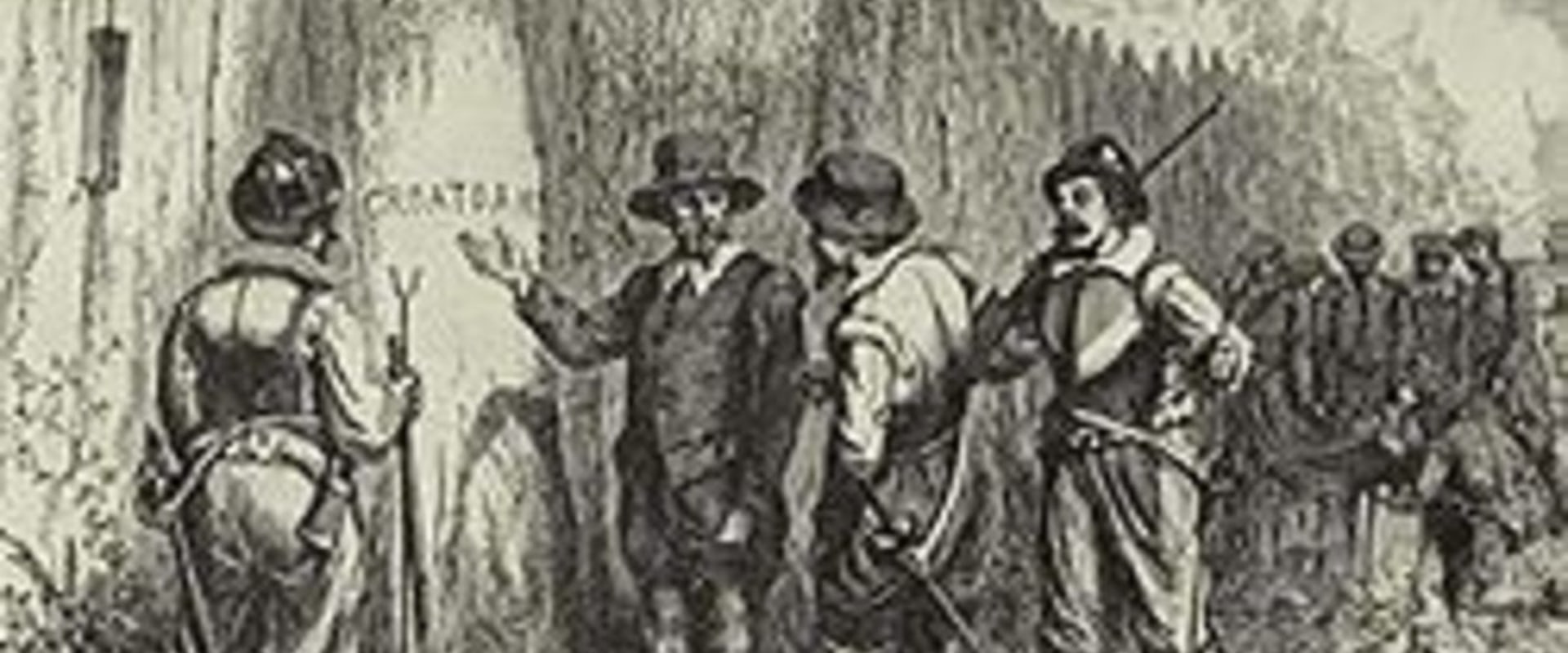Welcome to our journey through the Thirteen Colonies, a significant part of American history that laid the foundation for the birth of a new nation. These colonies, located along the eastern coast of North America, were established by European countries such as England, Spain, and France during the 16th and 17th centuries. Each colony had its own unique characteristics, but they all shared a common goal – to create a better life in the New World. As we delve into this fascinating period of colonial America, we will explore the diverse cultures, economies, and political structures that shaped these colonies. From the bustling cities of New England to the plantations of the South, we will uncover the challenges and triumphs that these early settlers faced as they built their communities from scratch. But before we embark on our journey, let's take a moment to understand why the Thirteen Colonies are such an important part of American history.
These colonies were the first successful British settlements in North America and served as a crucial stepping stone towards independence. The events that unfolded in these colonies laid the groundwork for the American Revolution and ultimately led to the birth of a new nation. Join us as we explore the Thirteen Colonies in depth and gain a deeper understanding of how they laid the foundation for modern-day America. Whether you are a history buff or simply curious about this pivotal period in American history, this article is sure to provide valuable insights and knowledge. So sit back, relax, and let's embark on our journey through colonial America. The Thirteen Colonies were a group of British colonies on the east coast of North America, founded between 1607 and 1733. These colonies played a crucial role in shaping the early years of the United States, from the first settlements at Jamestown and Plymouth to the American Revolution.
The Thirteen Colonies were made up of three distinct regions: New England, Middle Colonies, and Southern Colonies. Each region had its own unique characteristics and contributions to Colonial America. The New England colonies, including Massachusetts, Rhode Island, Connecticut, and New Hampshire, were primarily settled by Puritans seeking religious freedom. These colonies were known for their thriving fishing and shipbuilding industries, as well as their emphasis on education and government participation.
The Middle Colonies, consisting of New York, New Jersey, Pennsylvania, and Delaware, were diverse in terms of religion and culture. These colonies were known for their successful farming and trading industries, as well as their tolerant attitude towards different beliefs. The Southern Colonies, including Virginia, Maryland, North Carolina, South Carolina, and Georgia, were primarily settled by wealthy Englishmen looking to establish large plantations. These colonies relied heavily on agriculture, particularly tobacco and cotton, and also had a large population of enslaved Africans.
Throughout the colonial period, there were many significant events that shaped the development of these colonies. The Mayflower Compact in 1620 established the first form of self-government in the New World. The Salem Witch Trials in 1692 shed light on the dangers of mass hysteria and religious extremism. And the French and Indian War in 1754-1763 solidified British control over North America.
The Thirteen Colonies were also home to many influential figures who played a crucial role in the development of Colonial America. Some notable names include John Smith, leader of the Jamestown settlement; John Winthrop, founder of Massachusetts Bay Colony; William Penn, founder of Pennsylvania; and George Washington, commander-in-chief of the Continental Army during the American Revolution. For those looking to further explore the rich history of Colonial America, there are many educational resources and online courses available. The National Park Service offers guided tours and educational programs at various historic sites, such as Jamestown and Plymouth.
Online courses from institutions like Harvard University and Yale University also provide in-depth studies on Colonial America. Join us on a journey through the Thirteen Colonies, the birthplace of Colonial America. This article has provided a comprehensive look at the history, events, and people that shaped this pivotal time in American history. We hope this sparks your interest and encourages you to continue learning about this fascinating era.
The Road to Revolution
Tensions between the colonies and Great Britain grew as the British government imposed taxes and restrictions on the colonists.This ultimately led to the American Revolution, a war for independence that lasted from 1775 to 1783. The Thirteen Colonies banded together to fight against British rule, and eventually declared their independence in 1776.
The Early Settlements: Jamestown and Plymouth
Join us on a journey through the Thirteen Colonies, the birthplace of Colonial America. In 1607, the first permanent English settlement in North America was established at Jamestown, Virginia. The settlers faced many challenges, including conflicts with Native Americans and struggles with disease and starvation. Despite these challenges, they were determined to establish a successful colony and build a new life in the New World.Just thirteen years later, in 1620, another group of English colonists landed at Plymouth, Massachusetts. Unlike the settlers at Jamestown, this group sought religious freedom and a new beginning. These two settlements were just the beginning of the Thirteen Colonies, and would pave the way for the expansion and development of Colonial America.
The Growth of the Colonies
As more settlers arrived from Europe, the Thirteen Colonies continued to expand. New England colonies such as Massachusetts, Rhode Island, and Connecticut were known for their fishing and shipbuilding industries.The Middle Colonies, including New York, New Jersey, Pennsylvania, and Delaware, were known for their fertile land and diverse population. The Southern Colonies, such as Virginia, Maryland, and the Carolinas, relied heavily on agriculture, particularly tobacco and rice.The Thirteen Colonies were a crucial part of American history, laying the foundation for the United States as we know it today. By understanding the events and people of this time, we can gain a deeper appreciation for our country's past and how it has shaped our present.



